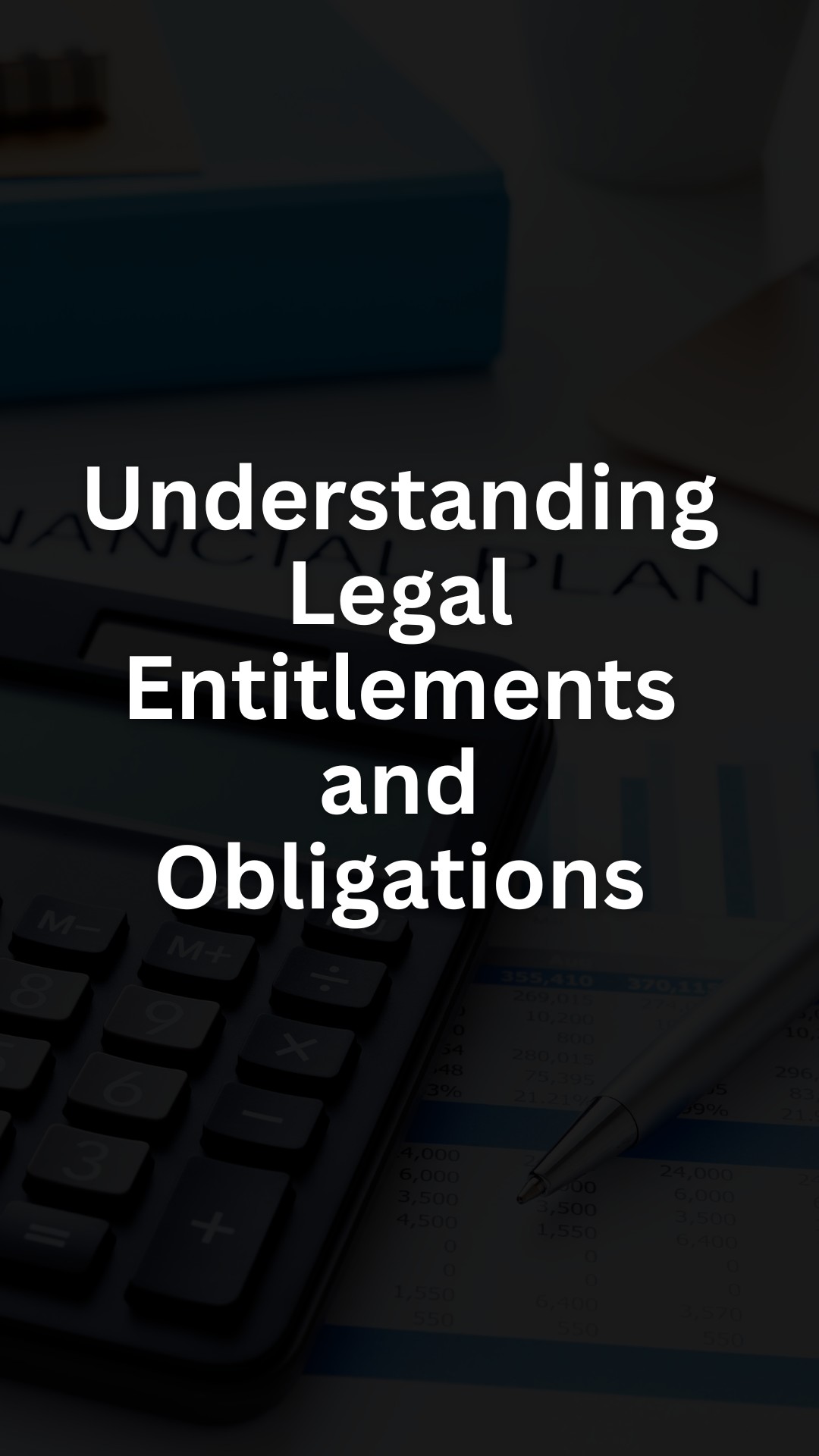Divorce can be a difficult and emotional process, but it’s important to also consider the financial impact it may have on your retirement plans.
Divorce can significantly reduce your retirement savings.
The cost of legal fees, splitting assets, and potential alimony payments can take a toll on your financial future.
You might find yourself needing to adjust your retirement timeline or even your retirement lifestyle.
Rebuilding your savings after a divorce is not easy, but it’s possible with careful planning and discipline.
It’s crucial to reassess your financial situation and make necessary changes to ensure you can still enjoy a stable retirement.
Divorce Statistics and Retirement Readiness

Divorce can significantly impact your retirement plans. Studies show that divorced individuals often have less savings compared to those who are married or single.
| Marital Status | Average Retirement Savings |
|---|---|
| Married | $131,000 |
| Divorced | $50,000 |
| Single (never married) | $95,000 |
Many divorced people find it hard to recover financially. You may need to divide your retirement accounts, which could reduce the funds available for your future.
Key Statistics:
- Nearly 30% of divorced individuals are not confident about retiring comfortably.
- Only 50% of divorced women feel prepared for retirement.
Planning for retirement after a divorce requires careful financial strategies.
You must consider changes in income, expenses, and potential support payments.
In your retirement planning, it’s crucial to account for:
- The possibility of a lower Social Security benefit
- Re-evaluating your investment strategy
- Making up for lost savings time
Paying attention to these details can help you build a more secure financial future post-divorce.
Understanding Legal Entitlements and Obligations

Divorce can have a big impact on retirement. It’s important to know what assets you are entitled to and what obligations you might have.
Asset Division Principles
In a divorce, the court will divide the couple’s assets. This may include homes, cars, and retirement funds. The division depends on the state you live in.
In community property states, assets are split 50/50. In equitable distribution states, the division is based on what is fair, which might not be equal.
Factors that can influence the division include:
- Length of the marriage
- Economic circumstances of each spouse
- Contributions of each spouse (both financial and non-financial)
It’s crucial to understand these principles to know what you may be entitled to.
Retirement Accounts and QDROs
Retirement accounts are often a large part of a couple’s assets. These can include 401(k)s, IRAs, and pensions. To divide these accounts, you usually need a Qualified Domestic Relations Order (QDRO).
A QDRO is a legal order that tells the retirement plan how to divide the account.
This can be complex, as different plans have different rules.
You need to handle QDROs correctly to avoid penalties and taxes.
Key points to remember:
- Get a QDRO for each retirement account.
- Ensure the QDRO is approved by the court and the retirement plan.
- Avoid early withdrawal penalties by following the QDRO instructions.
Spousal Support and Future Earnings
Spousal support, or alimony, is another important part of divorce settlements. The court may order one spouse to pay support to the other.
This depends on various factors, including the length of the marriage and the earning capacity of both spouses.
Spousal support can affect your retirement planning.
If you are paying support, this might reduce your ability to save for retirement. If you are receiving support, it can provide additional income, but it might not last forever.
Important things to consider:
- Understand how spousal support is calculated in your state.
- Plan for how long the support will be needed or paid.
- Adjust your retirement planning based on your new financial situation.
Impact of Divorce on Retirement Saving Strategies

Divorce can greatly affect your retirement savings. You might need to change how much you save and adjust your retirement plans.
Changes to Retirement Contributions
When you get divorced, your financial situation changes. You might have less money to put into your retirement accounts.
Your income might be lower, and you might have new expenses, like alimony or child support.
You might not be able to contribute as much to your 401(k) or IRA.
Be sure to review your budget and see what you can afford to save.
You may need to cut back on spending in other areas to keep your retirement savings on track.
If you receive a portion of your spouse’s retirement accounts, you might need a Qualified Domestic Relations Order (QDRO).
This legal document allows the distribution without penalties or extra taxes.
It’s important to understand how this affects your retirement contributions.
Retirement Plan Adjustments
Divorce can mean adjusting your retirement plans. You might need to work longer or change where you want to live when you retire.
Look at your new financial situation and set new goals for your retirement.
You may also need to re-evaluate your investments.
A different mix of stocks, bonds, or other assets might be better for your new situation.
Sometimes, you might need to take less risk with your investments to protect your savings.
Consider talking to a financial advisor.
They can help you navigate the changes and make a new plan.
They can also help you understand how your divorce settlement impacts your retirement.
Tax Implications of Divorce on Retirement Funds

When you get a divorce, there are important tax issues to consider with your retirement savings.
Early withdrawal penalties and changes to alimony taxes can seriously affect your retirement plans.
Tax Penalties on Early Withdrawals
If you withdraw funds from your retirement account early due to a divorce, you might face penalties.
Normally, taking money out before age 59½ comes with a 10% penalty on top of the income tax.
The Qualified Domestic Relations Order (QDRO) can help you avoid this penalty.
It’s a court order required during division of retirement plans.
You need the QDRO to split accounts without penalties. Without it, both parties might owe taxes and penalties.
The recipient should watch for tax details.
Depending on the plan type (like an IRA or 401(k)), they might defer taxes by rolling over the funds into their own retirement account.
Alimony Tax Changes
Alimony payments used to be tax-deductible for the payer and taxable income for the recipient. The laws changed in 2019.
Now, when it comes to alimony, the payer can’t deduct payments, and the recipient doesn’t report them as income.
This affects your retirement funds.
Since the payer’s taxable income remains high, they might have less money to contribute to retirement accounts.
For the recipient, not paying taxes on alimony could provide more net income, impacting their financial planning for retirement.
Discussing these changes with a tax advisor or legal professional is crucial.
It ensures compliance with the latest laws and helps both parties better prepare for retirement.
Adjusting Retirement Goals After Divorce

Divorce changes retirement plans in many ways. You may need to reassess your financial situation and set new goals that match your current reality.
Resetting Expectations
Your retirement savings might have taken a hit. You need to look at your current assets and income to see what you can realistically achieve.
Create a new budget that reflects your single-income status.
This budget should account for day-to-day expenses and long-term savings needs.
You might need to think about downsizing your home or cutting back on non-essential spending.
Avoid dipping into your retirement funds early, as this can lead to penalties and reduce your future savings.
Instead, look for other ways to adjust your expenses.
New Timelines and Milestones
Your timeline for retirement may need to change.
If you were planning to retire at a certain age, you might need to work a few extra years. This can help you build up your savings again.
Set new milestones for your savings.
For example, aim to save a specific amount each year or reach a certain total by a given age.
Break these milestones into smaller, more manageable steps.
This approach keeps you on track and makes the process less overwhelming.
Consider talking to a financial advisor.
They can offer personalized advice and help you create a realistic plan that suits your new situation.
Social Security and Divorce

Divorce can significantly affect your Social Security benefits. It’s important to know how your divorce may change your eligibility and the best ways to claim benefits after the divorce.
Benefit Eligibility
If you were married for at least 10 years, you might be eligible for Social Security based on your ex-spouse’s work record.
This can happen even if your ex has remarried. You must be at least 62 years old and also unmarried.
Don’t worry about this reducing your ex-spouse’s benefits.
Your benefits will not affect how much they get.
Make sure to check your eligibility to avoid missing out on potential income sources during retirement.
Claiming Strategies Post-Divorce
After a divorce, you have several options for claiming Social Security benefits.
If your ex-spouse has a higher benefit amount, you might be able to claim half of their benefit.
You should compare this with your own benefits to see which option gives you more money.
If you wait until you reach full retirement age, you might be able to claim a higher amount.
Understanding your choices can help you maximize your benefits during retirement.
Always consider your financial situation and consult with a financial advisor if needed.
Long-Term Effects on Retirement Lifestyle

Divorce can have many lasting effects on your retirement lifestyle. Splitting assets, such as savings and property, often reduces the funds you planned to retire with.
You might need to downsize your home or cut back on travel.
Adjusting your lifestyle can help make your funds last longer.
Financial stress can also delay your retirement.
You may need to work longer to rebuild your savings. This can impact your health and overall happiness.
Examples of Changes:
- Housing: Moving to a smaller home or renting.
- Travel and Leisure: Reducing vacations and entertainment expenses.
- Healthcare: Adjusting your budget for out-of-pocket medical costs.
Savings Impact:
| Before Divorce | After Divorce |
|---|---|
| Retirement Fund | Smaller nest egg |
| Investments | Split investments |
| Pension | Possible division |
Emotional and social impacts can also affect your lifestyle.
Losing a partner can mean losing a support system. Staying socially active can help.
Join clubs or groups to make new friends and stay engaged.
Planning for these changes early can make a big difference.
Talking to a financial advisor can help you create a new plan for your retirement.
Financial Planning and Professional Guidance

Divorce can affect your financial situation, so it’s important to adjust your investment strategies and consider getting help from financial advisors to secure your retirement.
Revisiting Investment Strategies
After a divorce, you may need to change your investments. You might have different goals now.
Start by looking at your current assets.
Are they in the right places given your new situation?
Your risk level could also change.
If you were more aggressive before, you might want to be more conservative now.
Diversifying your investments is also key.
This means spreading your money around different kinds of investments, like stocks, bonds, and real estate. It can help reduce your risk.
Regularly reviewing and adjusting your portfolio is important.
Life changes happen, and your investments should reflect that.
Seeking Financial Advisors
Getting expert advice can be very helpful. A financial advisor can guide you through your new financial landscape. They can help you reassess your goals and create a new plan.
It’s essential to choose an advisor who understands your unique needs post-divorce.
Look for a certified professional with good references. You want someone who listens to your concerns and explains things clearly.
A good advisor will not only help with investments but also with budgeting and saving for retirement. They can offer peace of mind during this uncertain time.
Psychological Effects and Decision-Making
Divorce can take a toll on your mental health. The stress and emotional strain might affect how you make financial decisions.
Stress affects your brain and can lead to poor choices. You might spend impulsively or forget to save for retirement.
When you’re unhappy, it’s harder to focus. This may lead you to overlook important details in your retirement plans.
Depression and anxiety can also play a role. You may feel overwhelmed and put off making important decisions.
Feeling isolated or lonely can lead to rash decisions. It’s easy to make choices you might later regret.
Support systems are crucial. Friends, family, or a counselor can help you think more clearly and avoid mistakes.
Making informed decisions is key. Seek advice from financial advisors to stay on track with your retirement goals.
Insurance Considerations Post-Divorce

Divorce can impact your insurance coverage and estate planning. Here are some key points to consider.
Health Insurance Coverage
After a divorce, figuring out health insurance is crucial. If you were on your spouse’s plan, you might lose that coverage.
You have options like COBRA, which allows you to stay on the same plan for up to 36 months.
Costs can be high with COBRA, so exploring marketplace plans through Healthcare.gov or state exchanges can offer more affordable solutions.
If you are employed, check if your employer provides health insurance.
If you have children, their health insurance needs must be considered too. Children can usually stay on a parent’s plan, but specifics depend on the insurance policy and custody arrangements.
Life Insurance and Estate Planning
Life insurance is vital to protect your financial future post-divorce. If you have policies naming your ex-spouse as a beneficiary, these should be updated.
Consider who will be financially dependent on you, like your children.
Review your needs for term or whole life insurance. Pay attention to any court orders requiring you or your ex to maintain a certain level of coverage.
Estate planning also needs an update. Adjust your will and any trusts to reflect the changes in your family structure. This includes updating beneficiaries on retirement accounts and other assets to ensure your loved ones are secure.
Case Studies: Divorce and Retirement Outcomes

Case Study 1: John and Mary’s Retirement Goals
John and Mary were married for 30 years before they divorced at age 60. They both had similar retirement goals and started planning early.
After the divorce, John kept the house while Mary took a larger share of the retirement account.
Outcome:
- John had to sell the house to downsize.
- Mary had a comfortable retirement but had to adjust her lifestyle.
Case Study 2: Sarah and Tom’s Unexpected Split
Sarah and Tom divorced when they were both 55. Neither had expected the split, and neither had significant retirement savings.
They split their combined assets equally, but they had to both rethink their retirement plans.
Outcome:
- Sarah chose to work a few extra years.
- Tom decided to invest in a smaller home and focus on saving more.
Case Study 3: Lisa and Mark’s Complex Financial Situation
Lisa and Mark had a complicated financial situation when they divorced at age 50. They had numerous investments and a small business together.
They decided to sell the business and split the proceeds, making sure each person received an equal share.
Outcome:
- Lisa invested her share in a retirement fund.
- Mark used his share to start a new venture.
Case Study 4: Emma and Jack’s Early Divorce
Emma and Jack divorced in their early 40s. They both had moderate retirement savings but faced challenges in dividing their assets.
They agreed on an amicable split, focusing on what was best for their children’s future.
Outcome:
- Emma moved to a smaller house and increased her retirement contributions.
- Jack took on a second job to boost his savings.
Frequently Asked Questions

Divorce can significantly affect your retirement plans. It’s essential to understand how your retirement assets may be divided, the impact on alimony, and the legal rights you have.
How do retirement assets get divided in a divorce settlement?
Retirement assets are usually considered marital property and are divided accordingly. The division depends on the state laws, such as community property or equitable distribution. A Qualified Domestic Relations Order (QDRO) may be needed to split certain retirement accounts.
What are the implications for alimony payments after retirement during a divorce?
Alimony may be modified when you retire. Your reduced income could lead to a decrease in payments. Courts will consider your ability to pay and the recipient’s need. It’s crucial to discuss potential changes with a legal advisor.
What is the duration of marriage required to claim entitlement to a spouse’s retirement funds?
The length of marriage can influence entitlement. In some cases, like Social Security, you need to have been married for at least ten years. Other retirement accounts may have different rules.
What legal rights does a spouse have to retirement accounts during a divorce process?
Both spouses have rights to retirement accounts accumulated during the marriage. You can seek a fair share through negotiations or court decisions. A QDRO is often essential to legally split these accounts without penalties.
How may divorce proceedings affect retirement planning for individuals over 50?
Divorce later in life can disrupt your retirement plans. You might need to save more or work longer. Revisiting your retirement strategy and consulting a financial advisor is wise to adjust to new circumstances.
Does gender play a role in financial outcomes for individuals after divorce with regard to retirement?
Gender can impact financial outcomes post-divorce. Women, for instance, may face different challenges due to lower lifetime earnings and career breaks.
Understanding these factors helps in preparing better for retirement.